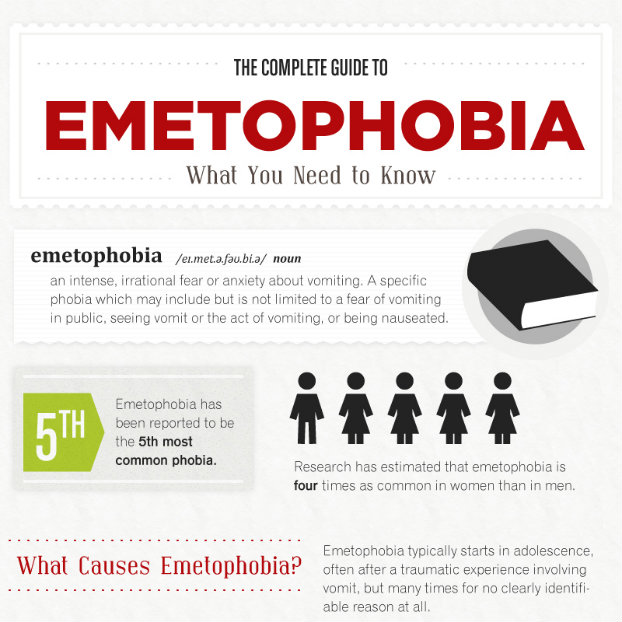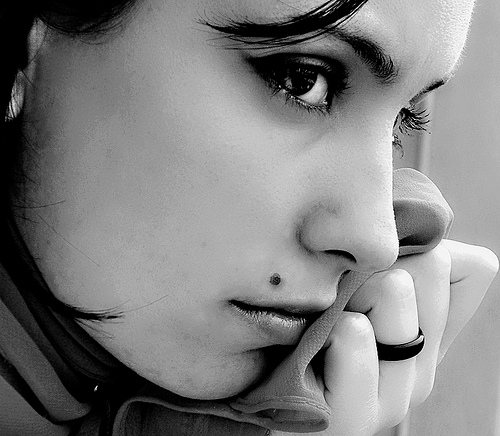 Emetophobia is an anxiety disorder that causes people to feel extreme fear of vomiting or seeing someone else being sick. Although it may seem a limited fear, it can affect many aspects of a person’s life.
Emetophobia is an anxiety disorder that causes people to feel extreme fear of vomiting or seeing someone else being sick. Although it may seem a limited fear, it can affect many aspects of a person’s life.
Emetophobia can harm your diet, your social life, and even your happiness. This is why seeking treatment is crucial to recovery.
Before you can seek treatment, however, you must first be formally diagnosed by a mental health worker. He or she can ensure you are not suffering from another condition that may be affecting your mental and physical health. Having more than one condition (“comorbidity”) can make certain treatments more effective than others, and can also mean that one disorder has to be treated before the other can be.
An article on “The emetophobia questionnaire” by Boschen, Veale, Ellison and Reddell offers key insight into the sypmtomatology of emetophobia. People who take the questionnaire are asked to rate their responses to each item from ‘Strongly Agree’ to ‘Strongly Disagree.’ Some of the items on the questionnaire include:
- avoiding air travel (or public transportation) for fear of becoming nauseous/vomiting
- avoiding places where there are no facilities to cater if you become nauseous
- noticing physical anxiety symptoms when exposed to vomit
By establishing how strong a person’s reaction is to things related to vomiting, a psychologist or psychiatrist can begin to determine if that person may have emetophobia. A normal person might just be somewhat likely to avoid certain situations in order to eschew vomiting. A person who is diagnosed with emetophobia, however, will usually have a much stronger reaction to anything related to vomit. Also, he or she will generally see a diminished quality of life because of the extent of the fear. This lack of general well-being is often what leads people to seek mental health services, although some people suffering from emetophobia may not even realize what they have. This is why a mental health exam can be so beneficial.
One important thing to remember is that only a licensed mental health professional can diagnose you. He or she has the proper tools and training to assess your symptoms and determine what, if any, condition you are suffering from. This article is just a source of information for people who think they may have emetophobia and are curious about its symptoms. This article is not intended to replace formal diagnosis by a mental health worker.
If you are interested in learning more about emetophobia and its effects on someone’s life, please refer back to the “emetophobia questionnaire” link above.





